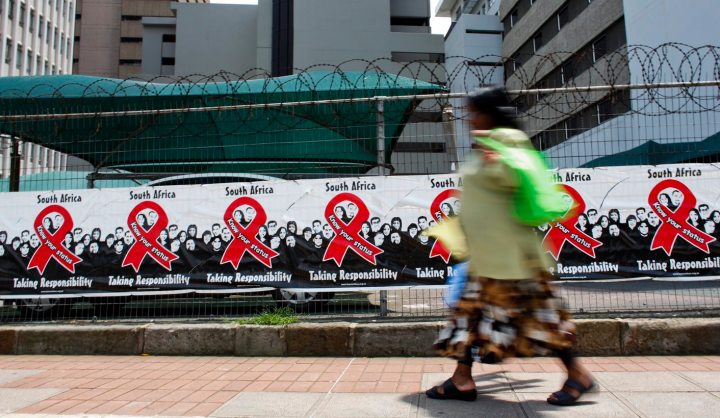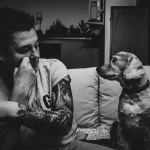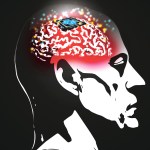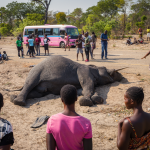Maverick Life, South Africa
HIV vaccine could be a reality soon, say researchers

A South African team of researchers has been working diligently on a research route laying the groundwork for an HIV vaccine, and a breakthrough study led by a University of the Witwatersrand PhD student was recently published in the prestigious journal Nature Medicine. So how far are we, really, from a vaccine? By MARELISE VAN DER MERWE.
A South African research team has published a study that has significant implications for the development of an HIV vaccine – although how far away the practical application is, remains difficult to measure.
Researchers from the University of the Witwatersrand (Wits), the Centre for the Aids Programme of Research in South Africa, and the University of Cape Town (UCT) released a statement on Monday confirming that their team – which included a PhD candidate at Wits – had published a seminal study that could be a decisive step towards a working vaccine.
The study, in a nutshell, focuses on a process that could drive the production of “broadly neutralising” antibodies that could fight and destroy various mutations of the human immunodeficiency virus (HIV). A key challenge in fighting the virus – from a purely scientific perspective – is the sheer number of mutations that exist, so driving the production of antibodies that could fight it globally counts as a major victory.
Because it is constantly fighting the body’s immune system, the virus regularly mutates within the patient’s body as well.
“The development of a vaccine remains the best possibility for ending the HIV pandemic,” Wits’s senior communications officer, Kemantha Govender, said in a statement. “However, the researchers say that a major challenge has been the inability to stimulate broadly neutralising antibodies that are able to deal with the enormous variability of HIV.”
The abovementioned PhD candidate, Jinal Bhiman, was the lead author of the study, which was published in the respected journal Nature Medicine. The article describes how the changing viral swarm in an HIV-infected person could drive the generation of antibodies able to neutralise HIV strains from across the world.
The study is titled ‘Viral variants that initiate and drive maturation of V1V2-directed HIV-1 broadly neutralising antibodies’, and the research team was led by Professors Penny Moore and Lynn Morris.
“This study has important implications for the design of a protective HIV vaccine,” Govender said.
The study of broadly neutralising antibodies is not entirely new, and Doctors Without Borders (MSF) HIV/Aids specialist and HIV/tuberculosis unit coordinator at the Southern Africa Medical Unit Dr Eric Goemaere told Daily Maverick the direction of the research was “very promising”.
The researchers previously discovered a vulnerable spot on the outer shell of the HIV cell, which enabled the production of the powerful antibodies. During their long-term follow-ups with the patients participating in their study, they found that a glycan – a form of sugar – in a particular position on the protein coat covering the virus cell was a weak spot that could be attacked by the neutralising antibodies.
Long-term study was particularly important because often the virus that caused the infection in the patient did not initially display the “weak spot”. But because HIV continually mutates within the patient, it eventually assumed a mutation with a protein coating containing the glycan that created the vulnerability.
Nonetheless, we can’t expect a vaccine tomorrow. The results of the study will first be tested on monkeys, and only after that to a limited extent on human subjects.
“We need to keep looking for a vaccine,” Goemaere told Daily Maverick. “It is difficult to predict how long it will take.
“It is very promising in the lab, but we still need to prove that for humans it can make a difference. It is just going to take time. Unfortunately it will not be the first [proposed] solution. We cannot bring down this epidemic just by treating all the cases; we need some preventive tools. In the long term, we do need a vaccine.”
Use of the broadly neutralising antibodies in human subjects – assuming it works and is found to be safe – will likely only happen in three years’ time or more.
“We have been taken by surprise by how fast an Ebola vaccine was developed, for example,” Goemaere said. “People have been announcing an HIV vaccine in five, 10 years, and unfortunately it has not come in yet.”
At Goemaere’s estimate, an HIV vaccine may be available in 10 to 15 years at best.
While some HIV-positive people are naturally able to make broadly neutralising antibodies, Govender explained, these antibodies often have unusual features, and generally need to go through an extensive maturation process in order to acquire breadth.
Furthermore, these people are in the minority. According to researchers, only around a fifth of HIV-positive people are able to produce these antibodies.
However, they are essential to understanding how to defeat HIV.
“Studying these rare people to understand how such antibodies develop provides a road map for vaccine strategies,” Govender said. The researchers studied one woman who developed potent and broadly neutralising antibodies. They applied a variety of approaches, including isolating monoclonal antibodies from single B cells and the ultra-deep sequencing of shifting viral populations over more than three years of infection.
By studying the same patient over a long period, the researchers were able to look back in time to identify the unique virus that “bound the precursors of what would become broadly neutralising antibodies, beginning the immune pathway to breadth”, they said.
As Goemaere explains it: “Some people – so-called ‘elite controllers’ are capable of controlling the HIV replication, while they develop this kind of antibody.”
The study revealed, over this longer period of research, how early antibodies matured to become broadly neutralising. The HIV swarm struggled to evade the potent early antibodies, and toggled through several mutations in its surface protein in its attempts to do so. In the process, the maturing antibodies were exposed to a diverse range of viruses within the single infected person. This enabled the researchers to better understand the process, and to begin to understand the steps required to replicate it.
“Antibodies exposed to this high level of viral diversity in turn mutated to be able to tolerate variation, thus acquiring the ability to neutralise diverse global viruses,” the researchers said.
In other words, these antibodies acquired the ability to fight off viruses in a far broader capacity. The significance of this finding is that it provides insights that lay the groundwork for the design of vaccines that can kick-start – and ultimately shape – the maturation of broadly neutralising antibodies in HIV-negative individuals, the researchers say. This will provide protection should they be exposed to the virus.
“Understanding the elaborate game of cat and mouse between HIV and the immune response of the infected person has provided valuable insights into how broadly neutralising antibodies arise,” Moore said.
The study was performed at the National Institute for Communicable Diseases of the National Health Laboratory Service, as part of the Centre for the AIDS Programme of Research in South Africa consortium, with long-standing collaborations with UCT, the US National Institutes for Health Vaccine Research Center and Columbia University.
It was funded by the South African Department of Science and Technology, the South African Medical Research Council Strategic Health Innovations Programme, the US National Institutes of Health and the Wellcome Trust. DM
Photo: A woman walks past Aids awareness posters in Durban, South Africa, 01 December 2011. EPA/NIC BOTHMA

















 Become an Insider
Become an Insider